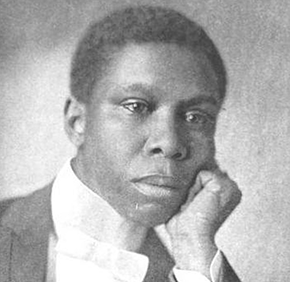A Corn-Song
On the wide veranda white,
In the purple failing light,
Sits the master while the sun is lowly burning;
And his dreamy thoughts are drowned
In the softly flowing sound
Of the corn-songs of the field-hands slow returning.
Oh, we ho de co'n
Since de ehly mo'n;
Now de sinkin' sun
Says de day is done.
O'er the fields with heavy tread,
Light of heart and high of head,
Though the halting steps be labored, slow, and weary;
Still the spirits brave and strong
Find a comforter in song,
And their corn-song rises ever loud and cheery.
Oh, we ho de co'n
Since de ehly mo'n;
Now de sinkin' sun
Says de day is done.
To the master in his seat,
Comes the burden, full and sweet,
Of the mellow minor music growing clearer,
As the toilers raise the hymn,
Thro' the silence dusk and dim,
To the cabin's restful shelter drawing nearer.
Oh, we ho de co'n
Since de ehly mo'n;
Now de sinkin' sun
Says de day is done.
And a tear is in the eye
Of the master sitting by,
As he listens to the echoes low-replying
To the music's fading calls
As it faints away and falls
Into silence, deep within the cabin dying.
Oh, we ho de co'n
Since de ehly mo'n;
Now de sinkin' sun
Says de day is done.
This poem is in the public domain.
"A Corn-Song" appeared in The Collected Poetry of Paul Laurence Dunbar (Dodd, Mead and Company, 1913).

